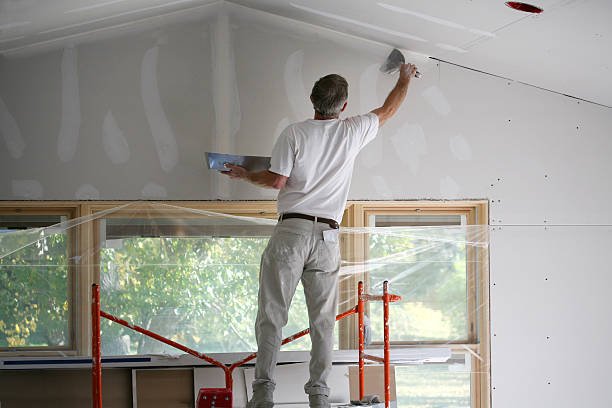What Every Homeowner Should Know Before Starting a Renovation
Renovating your home is a big step. It can improve your space, boost your property value, and make your home more comfortable. But before jumping in, it’s important to be prepared. Good planning helps you avoid delays, extra costs, and unwanted stress. Here’s what every homeowner should understand before starting a renovation project.
Set Clear Goals
Start by knowing what you want. Are you renovating to fix something? To make more space? Or to improve your home’s style? Clear goals will guide your budget, timeline, and design decisions.
Make a list of priorities. Focus on changes that will give you the biggest return on investment. Keep in mind your lifestyle needs too—function is just as important as looks.
Create a Realistic Budget
Costs can add up quickly during a renovation. To stay in control, set a realistic budget early. Include labor, materials, permits, and a buffer for unexpected expenses.
Get several quotes from contractors or service providers. Don’t go with the cheapest option without checking reviews or references. Quality work may cost more but will save you money in the long run.
Know What to Tackle First
Every renovation should start with the basics. This includes the structure, foundation, and layout. Once these are solid, you can move on to finishes and cosmetic updates.
For example, framing services should be scheduled early if you’re opening up rooms or changing layouts. Proper framing ensures your renovation is safe and built to last.
Prepare for a Mess
Renovations can get messy fast. Dust, debris, and waste will pile up, especially during demolition and remodeling. Preparing your space in advance can make the process easier.
Professional trash removal keeps your space clear and safe during every stage. This also keeps the job moving on schedule. Don’t underestimate how much waste even a small project can produce.
Plan for Hidden Issues
Once walls come down or floors get pulled up, problems can be revealed. You might find mold, plumbing issues, or damaged wiring. These hidden problems are a common cause of delays.
Working with experienced contractors helps you manage surprises. Be ready to make decisions quickly if issues arise. Always keep a portion of your budget for unplanned repairs.
Focus on High-Value Upgrades
Some parts of your home give a better return than others. Kitchens and bathrooms often bring the most value when upgraded. But don’t ignore smaller changes—they matter too.
Bathroom remodeling adds function and updates an important space in your home. Even simple changes like new fixtures or better lighting can make a big difference.
Don’t Skip the Details
Small details like trim, finishes, and hardware might seem minor—but they pull the whole look together. These features add value and make your renovation feel complete.
Baseboard installation is a good example. Clean, well-installed baseboards improve the look of a room and protect your walls. It’s a detail that many buyers notice.
Think About Surface Prep
Painting and finishing work can show every flaw underneath. Before applying new paint, wallpaper, or tile, make sure surfaces are properly prepared. This improves the final result.
Smooth and Level 5 finishes create the ideal surface for high-end finishes. These are especially helpful in bright rooms where imperfections are easier to spot. The smoother the surface, the better your walls and ceilings will look.
Remove the Old Before Adding the New
Outdated materials or finishes can limit what’s possible in your renovation. Removing them makes room for upgrades and ensures everything works together.
Popcorn and wallpaper removal is one example of a clean-slate upgrade. It’s a fast way to modernize a room and prepare it for paint or new design features. This step also helps with long-term maintenance.
Upgrade Outdoor Spaces Too
Renovations shouldn’t stop at the front door. Outdoor spaces are just as important when it comes to value and usability. Clean, attractive entryways and yards make a big impression.
Driveway and paver installation improves curb appeal and boosts safety. Cracked or uneven surfaces can be replaced with durable, modern materials that elevate the entire look of your property.
Make Space for Work
Renovating while living in your home can be stressful. Plan ahead to stay comfortable during the process. Clear out furniture, cover surfaces, and limit access to certain areas if needed.
Demolition services should be done by professionals to reduce risk and damage. A safe, efficient demolition clears the way for new materials and layouts. This sets the stage for the rest of the project.
Choose the Right Flooring and Walls
Your floors and walls set the tone for every room. They should be durable, clean, and reflect your style. These surfaces are also some of the first things people notice.
Tile services offer a great way to update kitchens, bathrooms, and floors. Tiles are easy to clean and come in many styles. Choose colors and textures that match your vision.
Behind the walls, drywall services near me are key for a solid, clean look. Quality drywall work creates smooth surfaces and improves insulation and soundproofing. It’s the backbone of every finished room.
Final Thoughts
Starting a home renovation is exciting—but it comes with a lot of decisions. Take time to plan properly and prioritize the most important upgrades. Work with trusted professionals who understand the full scope of your project.
Focus on the structure, surfaces, and long-term value. Clear the space, fix the basics, and add thoughtful design choices. With the right plan, your renovation will go smoother—and your home will look and function better than ever.


